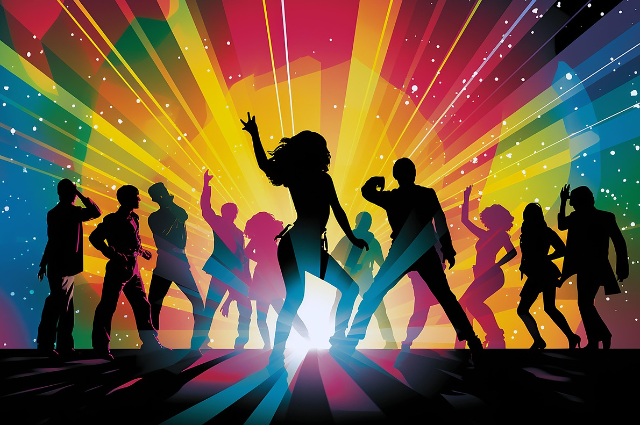
Sabrina Carpenter's ‘Man's Best Friend’ has certainly minted itself in the public's mind with a pop culture moment that seems too cheeky not to recognise and too cringey to ignore. Carpenter walks a line of provocation and empowerment with a catchy beat, funny lyrics, and 1950s imagery, dressed in pastel housewife glamour, walking a line of shirtless guys like a row of compliant dogs in the music video. It's satire for sure, but the more we think about it, the more interesting the question: does it further feminist subversion by making a clever reversal of gendered power dynamics, or does it turn around and exploit the very same tropes the piece seeks to subvert?
Claim to Power or Aesthetic Irony?
The obvious reading of Man's Best Friend is simply this: the one in power is in a reversible position of power, and the despised woman is now empowered. But Sabrina Carpenter leashes men as if they are now domesticated, only not too long ago, women were the "domesticated" and were maintained in place. And without a doubt, it's attention-grabbing. But then again, attention-grabbing does not mean advancement.
In political philosophy, especially through a feminist lens, power is not just about who is in charge. It is also concerned with the histories, processes and structures that initially operate to normalise that position. In The Second Sex, Simone de Beauvoir famously argued that women have always been defined about men, as his "Other". It may seem subversive to just flip the images, but are we escaping the dominator/dominated matrix that is the same? Or just doing it backwards and showing us again that the leash is the only language we understand - whether it is tangible or symbolic.
The Point When Feminism Becomes a Costume
It can be dangerous to confuse aesthetics with ideology. Carpenter's rosy pinks, frilly skirts and big hair all play with mid-century femininity. It should be noted that at this time, women were advised that the only place they belonged was in the kitchen. Feminist critics like Betty Friedan, author of The Feminine Mystique, spoke about the "problem that has no name" - the intellectual, emotional and psychological degradation of women who were expected to be fulfilled only in their domestic roles. While irony can be a liability, Sabrina's housewife persona offers irony. In the era of Instagram feminism and brand-friendly "empowerment," there is the risk of turning centuries of gender struggle into something acceptable, and maybe even profitable. Political philosopher Nancy Fraser has warned us about the neoliberal co-optation of feminism, in which systemic change is relegated to individual choice, aesthetics, and consumer empowerment. The question is not whether it is funny (it is) or sexy (that's subjective), but whether we can interrogate deep-seated notions of gender hierarchy when we see Carpenter leading a group of half-naked guys. Or do we simply provide ourselves with a new fantasy that commodifies subordination?
Whose Freedom, at What Cost?
The song's lyrics mention the idea of replacing a man with a dog—one that listens better than a man, is faithful to you, and doesn't cheat. This is satirical. However, casually comparing human men with "dogs" still operates to reinforce a dichotomy in which women can only gain power through dominion and not on equal footing. What starts as a sarcastic song of resistance can end up unintentionally falling into the same misogynistic reasoning it is claiming to oppose: that one party must be subjugated and that partners fight wars.
Bell Hooks, a race and gender political theorist, said, "feminism is for everybody", meaning liberation is not the reversal of oppression, but rather the obliteration of the structures of oppression. And although men are objectified and ridiculed in Man's Best Friend, does it challenge misogyny or merely develop a fleeting spectacle that still relies on misogyny? Secondly, consider the audience. What position from which to view this inversion is being taken by younger viewers who have grown up watching Sabrina Carpenter on the Disney Channel? Does it create new myths for people who have never read de Beauvoir, Fraser, or Hooks, or is it indeed a clever parody for those who are already aware?
Art as a gun, Art as a mirror
To be honest, music videos are not manifestos. They are art, and art is contradictory, multilayered, and complex. But role-reversal is not exactly a new critical strategy from Carpenter. We have seen Lady Gaga, Madonna, and Beyonce all play coy with the clichés of power and hyper femininity, and even if done collectively, parody and performativity only contest norms when they illustrate the artifice, not when they simply turn it inside-out, as political philosopher Judith Butler makes clear in Gender Trouble. There are instances in Man's Best Friend where the performance is so intense, and the staging so over-the-top, that it feels more Brechtian than Barbie. These are critical moments. In other moments, the humour feels too measured, the visuals too mega, the point too obfuscated. When viewed through the lens of "girlboss revenge," does oppression still hurt?
Conclusion: Exploitation or Art?
So, is man's best friend exploitation or art? Perhaps the unfortunate answer is both.
While it does challenge views, it does toy with narrative, and it certainly does provoke thinking, so it is art. It is also exploitation of feminist thought and of gender stereotypes, which are repackaged and pushed upon us in glittering contexts. In this context, it does not reliably construct irony as a sword, but as a shield. The philosophical quandary is whether this is more aligned with a symbol of emancipation instead of women suddenly leading men on leashes. True feminism is about demolishing the system that requires anyone to ever be on a leash at all, not taking patriarchs out of the equation, and putting matriarchs in their place. Ultimately, Carpenter's video may represent a window into a society that still cannot imagine dominance without power. And that may be the most useful glimpse of all.
